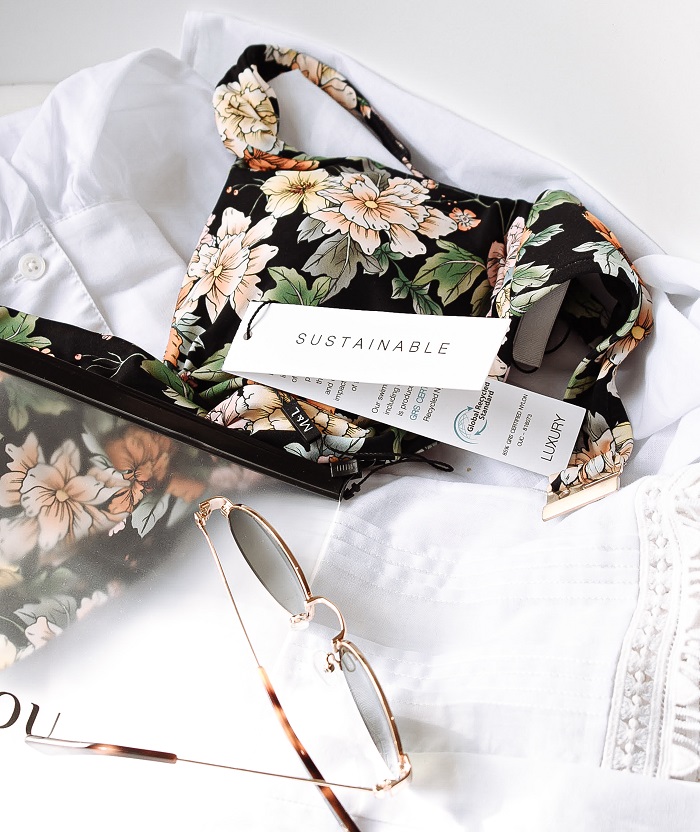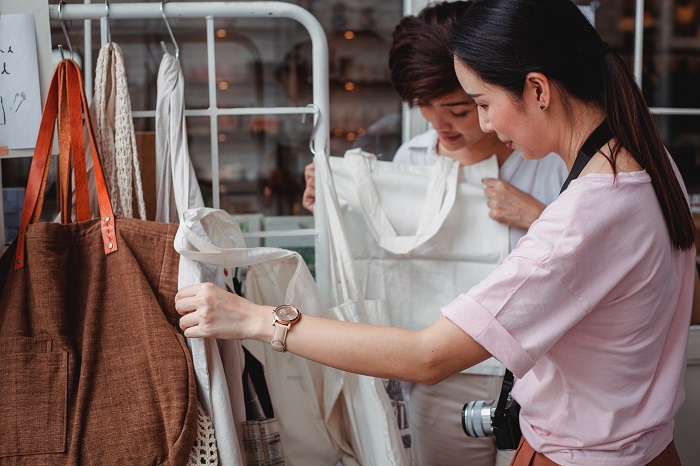We mostly think about pollution issues; we believe that only coal mines and giant oil companies are creating pollution worldwide, but the reality is that the fast fashion industry is one of the primary polluting industries globally. Fast Fashion’s excessive product production and manufacturing processes are harmful to our planet, as wastes and chemicals are released into our air, land, and water, creating a severe crisis. Therefore, sustainability in fashion is becoming more and more of a priority—and consumers are pushing for transparency and accountability from brands.
The word “sustainable” can mean various things; for example, brands follow sustainable practices when they use natural fibers in their products, lower water use, or form recycling programs. And generally, when people talk about sustainable products, they also mean ethical creations.

Eco-friendly brands are a little expensive because their products are sustainably produced. On the contrary, fast-fashion retailers supply a wide variety of affordable and stylish products. They surrender quality, workers’ welfare, and the climate’s health to be able to afford lower price tags.
Thankfully, the fashion industry and consumers recognized that there are many more things in the world of fashion that should be renovated with the help of sustainable processes. Consumers are seeking transparency nowadays. Therefore, brands are becoming increasingly conscious and are slowly adopting more eco-friendly production methods, including using upcycling natural materials, growing organic cotton, and low-impact dyeing.
What Do You Understand By Sustainable Fashion?
Sustainable Fashion is a design movement and philosophy that encourages environmental and social obligations. Sustainable Fashion is characterized by clothing, shoes, vegan bags, and other accessories that are manufactured using sustainable materials and procedures.

Some alternative terminologies that are currently used to define sustainable fashion are:
- Slow Fashion: means producing limited quantity and focusing on quality by following sustainable processes. Conscious Fashion: generally means eco-friendly, green Fashion.
- Circular Fashion: means upcycling, or recycling of products and/or materials
- Ethical Fashion: means safe production, working conditions, and fair-trade business practices
How Eco-Friendly Fashion Is Making A Difference
Sustainable fashion minimizes adverse environmental effects and integrates style and environmentally-friendliness
Sustainable fashion leads to reduced strain on the world’s resources as eco-friendly products are made via sustainable techniques.
- It aims to decrease toxic waste and sustains animal rights.
- Usually, sustainable brands’ products maintain some sort of uniqueness, either in terms of design or functionality.
- Ethical Fashion aims not to harm people and promotes a safe and fair work environment.
What Makes A Fashion Brand Eco-friendly?
When you get to know fashion productions’ social and environmental implications, deciding where to buy the products and other things demands much more than simply picking any fashion brand.

Eco-friendly fashion businesses claim to care about Mother Earth. The way these businesses follow sustainable practices can vary from one another. For example, some eco-minded brands use raw materials, and some use regenerative farming practices to support soil health and promote biodiversity—some even plant trees when you buy products from them.
Following are some of the characteristics of an eco-friendly brand. Bear in mind that not every company is the same, and their stance and actions on sustainability are different.
- Raw materials are sustainable:
Eco-friendly brands use sustainable materials, i.e., the materials are recycled, upcycled, and/or plant-based.
- Their materials or products are certified by credible organizations: A lot of eco-friendly brands’ products and/or their materials are licensed by Global Organic Textile Standard (GOTS), Bluesign, OEKO-TEX, etc. These certifications are considered highly credible, and they attest to the fact that the brands are not simply ‘green washing’ customers.
- They make high-quality products: Eco-friendly brands create long-lasting and durable materials compared to fast-fashion retailers that produce fabrics that fall apart after using them on irregular wear.
- They follow sustainable distribution and manufacturing processes: Many ethical companies ensure that their products can be recycled at the end of their lives. Many of them deliver lifetime free discounts, repairs, or store credits for turning in old products purchased from their shops.
- Fair business practices: Many ethical fashion companies work with fair-trade suppliers and provide their employees with modest living paychecks. They also guarantee a safe working environment with reasonable work hours. More importantly, they usually do not use or force child labor.
- They perform with charity institutions: Ethical brands work with charity groups or give some part of their profit to the actual cause. Their goal is to make the world a fairer place.
The Final Thought:
Eco-friendly and sustainable fashion is a technique towards manufacturing, designing, and sourcing clothes and accessories that minimizes impact on our environment.
